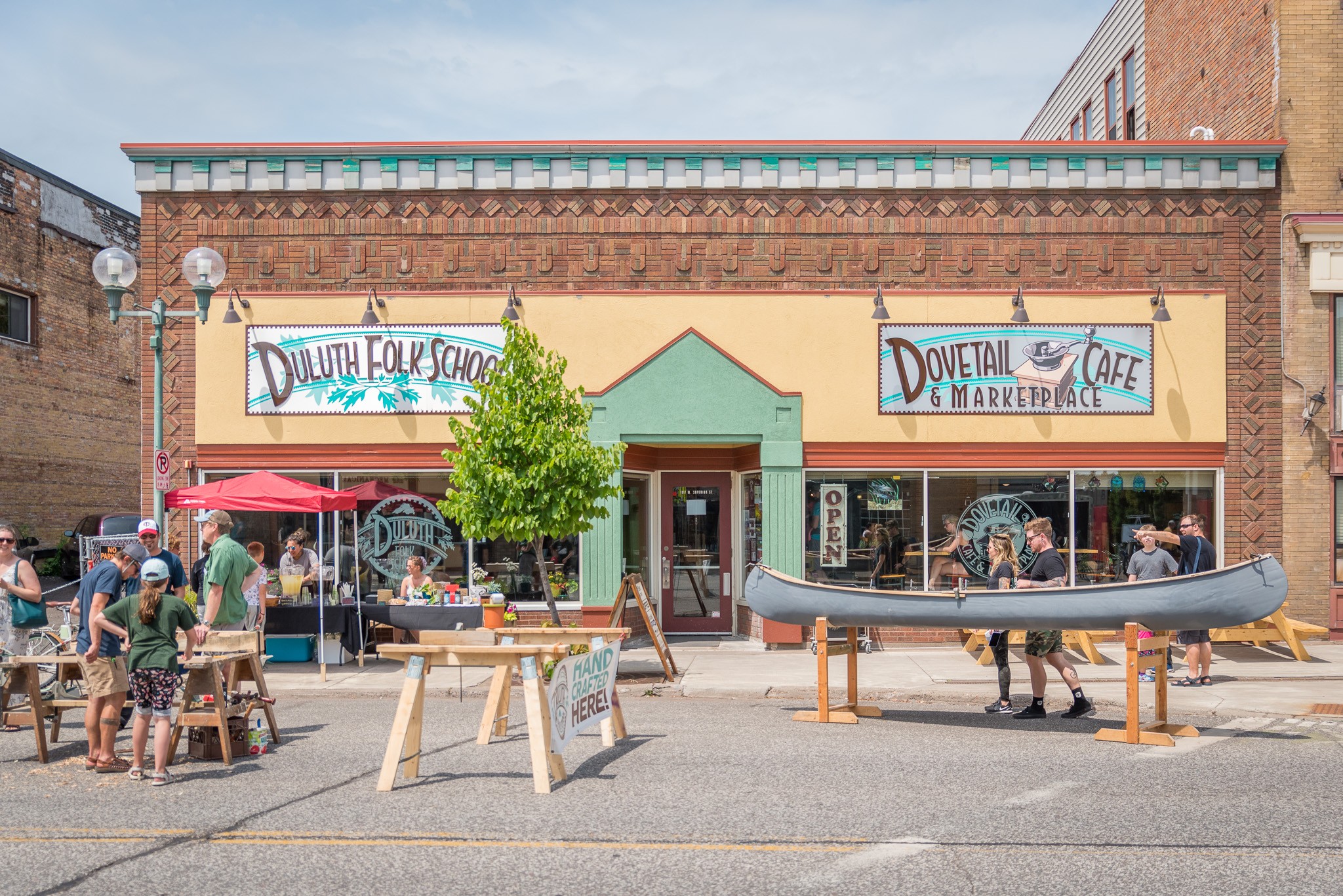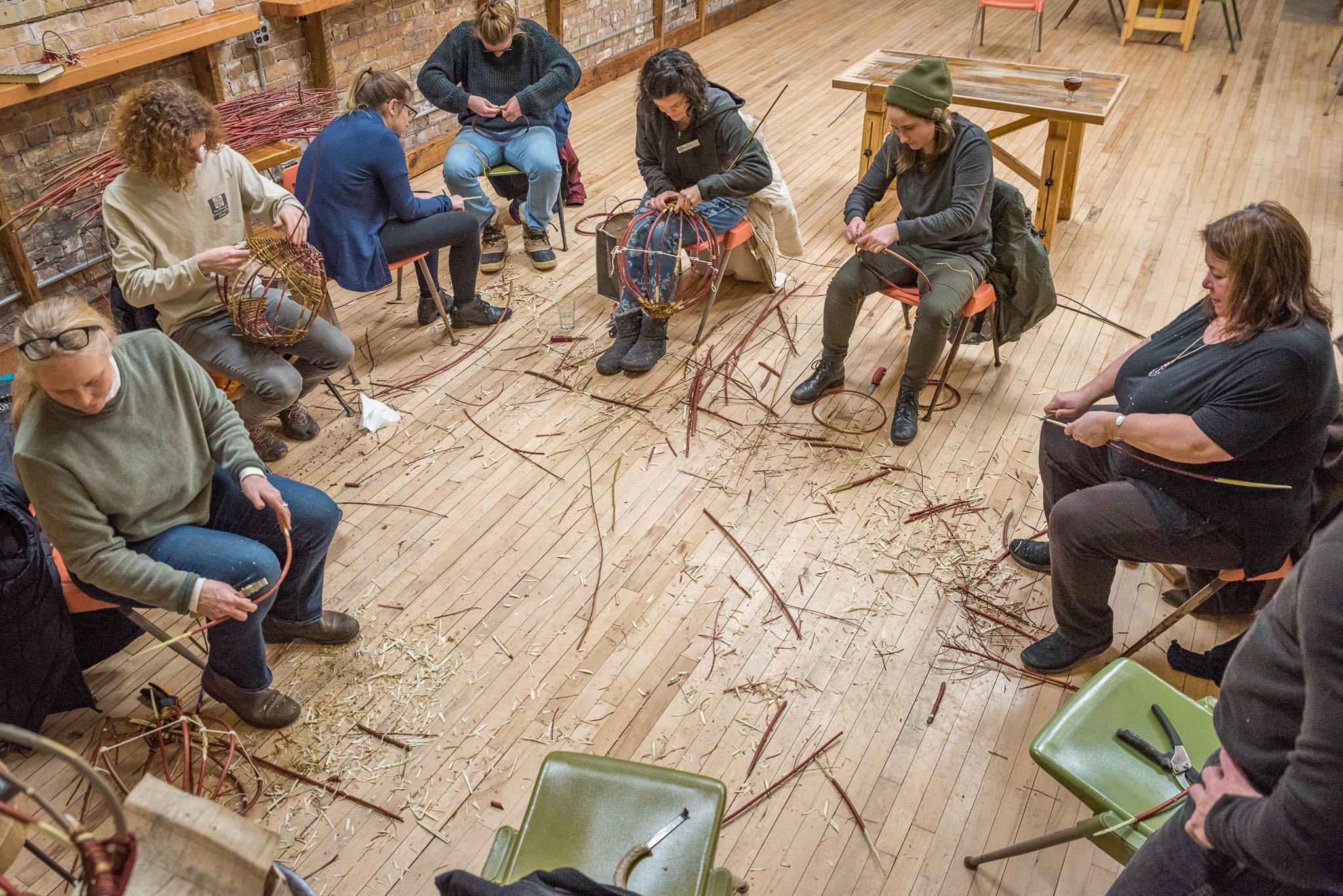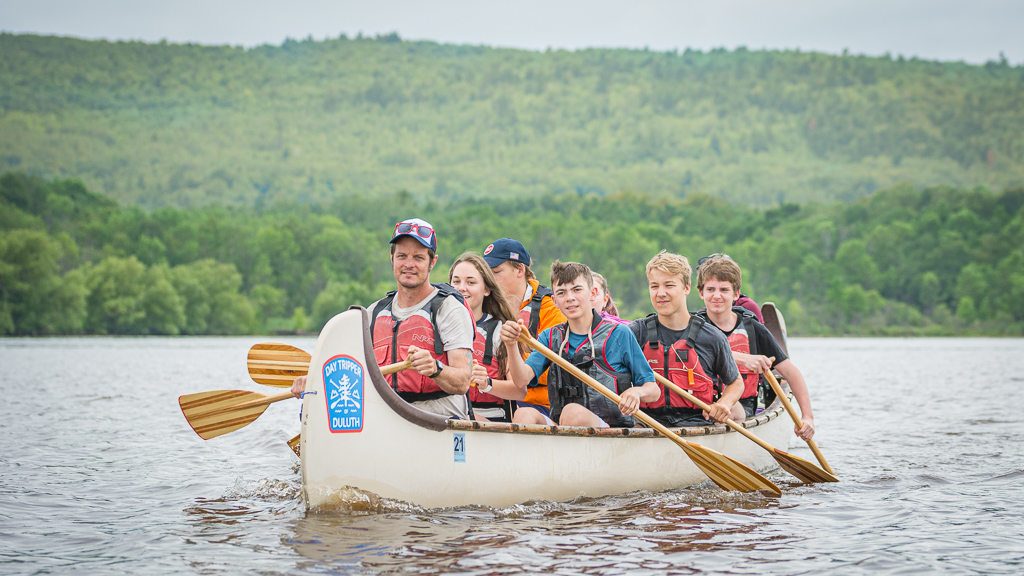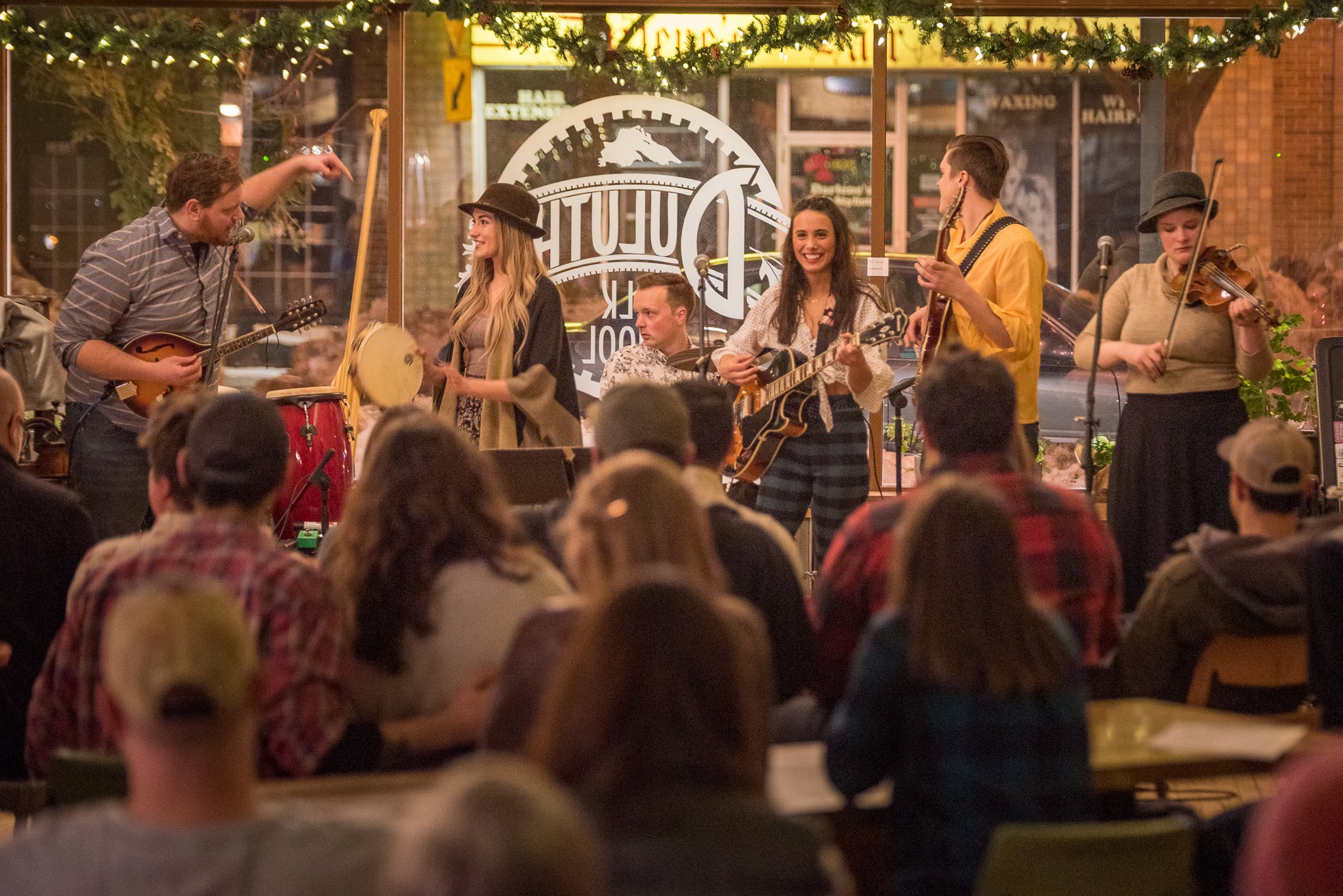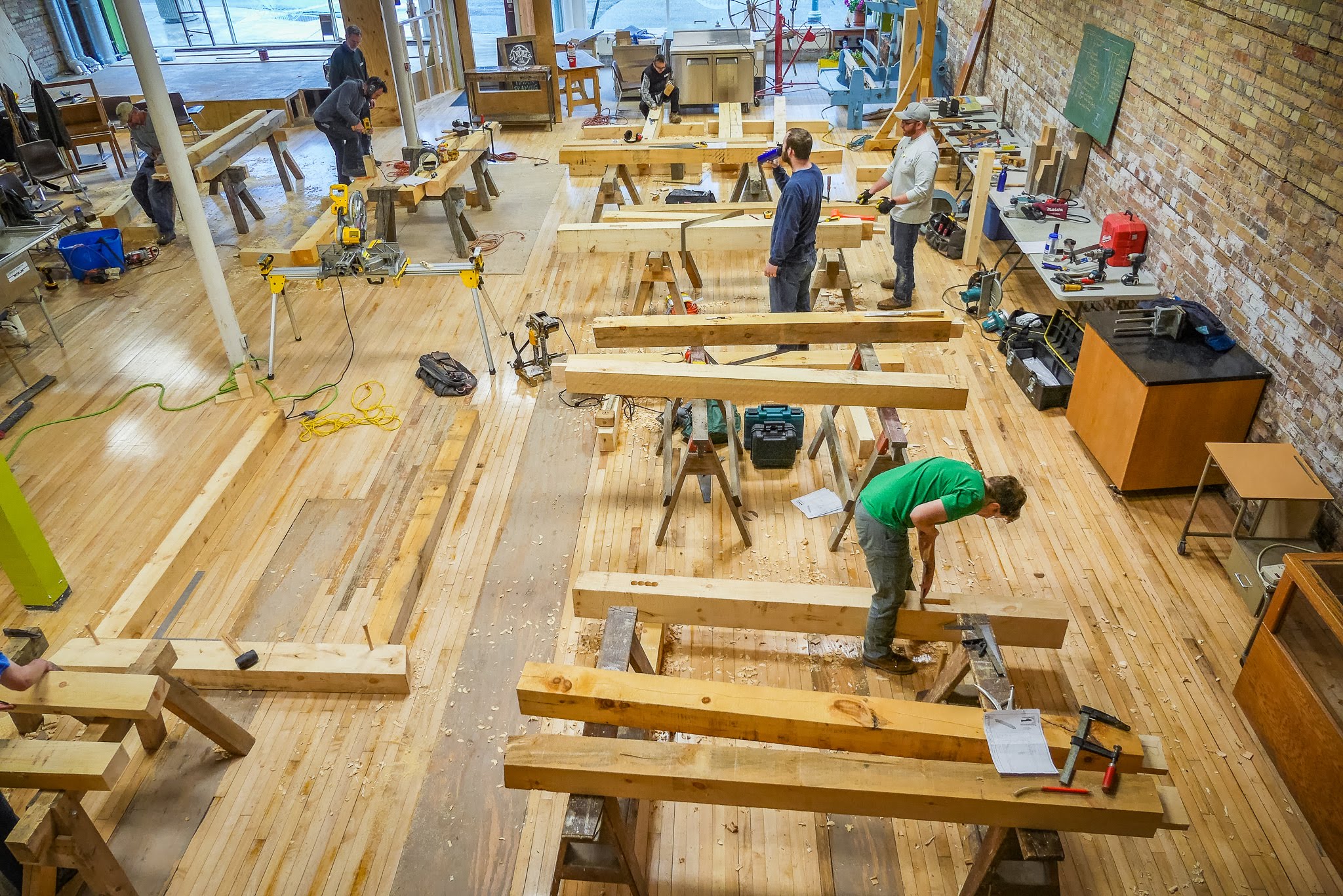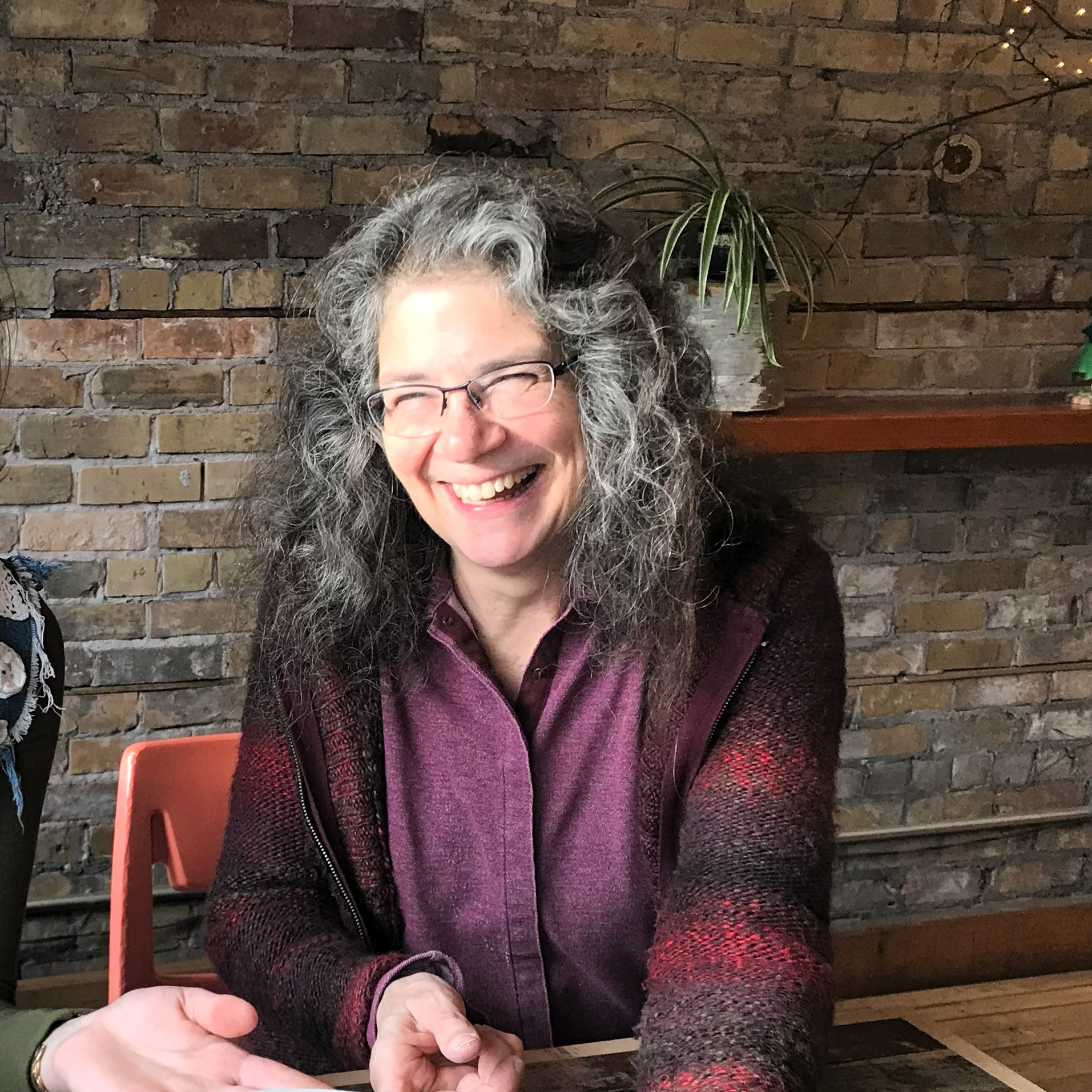

Today we’d like to introduce you to Carmel DeMaioribus.
Hi Carmel, so excited to have you with us today. What can you tell us about your story?
When I was younger, I never imagined I would be a co-founder of a folk school—I studied electrical engineering, and spend a long while raising a family. And yet, the vision of a folk school is instantly compelling: a place where people gather—not around food, but around doing things with their hands. It’s something that creates instant bonds, a broad sort of appreciation, and a sense of happiness and agency.
The opportunities for this feeling have dwindled. In fact, opportunities to simply gather have dwindled! As I moved around the United States—my parents and husband were in the military—it was clear that people spent more time in cars than they did together, and people’s opportunity to gather varied tremendously.
At Duluth Folk School, we host community dances, woodworking and woodcarving classes, gathering opportunities, folk jams, music, and more. It’s a whole host of satisfying things to do, often in contrast to opportunities available elsewhere. It’s been an absolutely wonderful experience and project, and it’s been such a gratifying way to build community.
We all face challenges, but looking back would you describe it as a relatively smooth road?
The world is sometimes hostile to good gathering! If you go to many typical live music shows, you may feel lonely even though you’re surrounded by people. Even so, this sup-optimal gathering event makes enough money through beer sales and cover charges that they can survive indefinitely.
By contrast, at our basket weaving class, students often become close friends—it’s a deeply meaningful experience to them. But just because it’s a meaningful experience doesn’t mean it’s existence is guaranteed. This struggle between the “banality of what survives” and the “beauty of what actually creates a vibrant life” is constantly present in a project like Duluth Folk School.
That’s one of what we do here: we try to share perspective and insight, and the sense that things really can be wonderful. For a lot of people, they’ve lost hope in wonderful experiences—that they can be in touch with nature, with their hands, create things, be lifelong learners, make friends, meet and learn from experts, be in and belong to beautiful spaces. We try to kindle that hope, and start good fires.
As you know, we’re big fans of Duluth Folk School. For our readers who might not be as familiar what can you tell them about the brand?
I help run Duluth Folk School, an urban folk school in the center of Duluth. We’re one of the few organizations in Minnesota that built the majority of its own tables. Our building is full of beautiful, upcycled and handcrafted features—and it embodies our organizational values, of community-creating-community, self-created beauty, right relation to history and the future, sustainability, and good craft.
At Duluth Folk School, we help regional experts connect with students for classes, and offer hundreds of free events each year. Our mission is to “build community through joyful experiences of handcrafting, art, and gathering.”
What do you like and dislike about the city?
I like cedar waxwings; coping saws; great coffee; and all the good-hearted folk who stop by with enthusiasm for community.
Contact Info:
- Website: https://duluthfolkschool.org
- Instagram: https://www.instagram.com/duluthfolkschool/
- Facebook: https://www.facebook.com/duluthfolkschool
